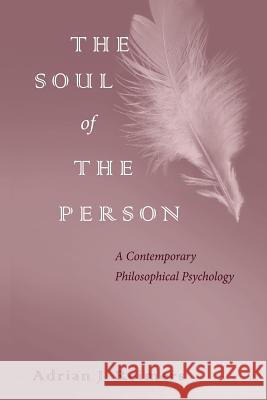The Soul of the Person: A Contemporary Philosophical Psychology » książka
The Soul of the Person: A Contemporary Philosophical Psychology
ISBN-13: 9780813227191 / Angielski / Miękka / 2006 / 320 str.
Does the human being really have a soul? Is the idea of 'soul' a matter of religious faith? If science cannot detect the soul, how can reasonable people speak of it? The Soul of the Person is a contemporary account of the metaphysical basis for the transcendence of the human person. In being directed toward truth, beauty, and goodness, the human person transcends the physical order and reveals himself as a spiritual, as well as a material, being. The metaphysical principle for this transcendence is what we call the soul. In this book, Adrian Reimers presents a rereading and interpretation of Thomas Aquinas's account of human nature. The book's argument is based principally on two modern thinkers: Charles Sanders Peirce and his theory of habit and sign, and Karol Wojtyla and his notion of the transcendence of the acting person. According to Reimers, the person is constantly in the process of self-realization, which occurs through the rational adoption and development of habits. "Rationality" is not a purely mental phenomenon; rather, it imbues our entire being. The human person forms his behavior--habits--rationally according to his ideals of what is truly good, even if that vision of the good is flawed, incomplete, or unacknowledged. This development of habits directed toward values is the root of the person's consciousness of self. Furthermore, the values by which one forms his life define the self that he more clearly becomes as a person. The rational principle by which he develops these habits is called the soul. The text concludes with an explanation of the immortality of the soul. ABOUT THE AUTHOR: Adrian J. Reimers is adjunct assistant professor of philosophy at the University of Notre Dame. He is the author An Analysis of the Concepts of Self-Fulfillment and Self-Realization in the Thought of Karol Wojtyla, Pope John Paul II.











